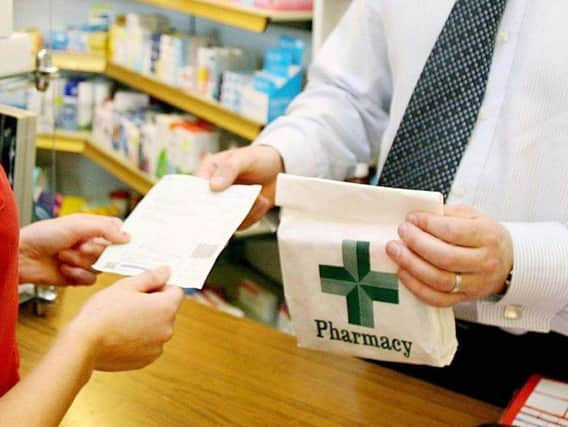47,000 fines issued to people on Fylde coast to patients wrongly claiming free prescriptions


Thousands of people living on the Fylde coast have been fined by the health service’s anti-fraud squad, which has ramped up the number of eligibility checks in recent years.
But, with one in five successfully challenging the fines of up to £100 because they were indeed entitled to free medicines or dental care, there are fresh concerns over the system currently in place, which has been called ‘confusing’ by the National Audit Office (NAO).
Advertisement
Hide AdAdvertisement
Hide AdAlison O’Brien, head of loss recovery at the NHS department tasked with recouping cash lost of false claims, said automatic checks are carried out in a bid to catch those cheating the system.
She said: “We do this to protect public funds and provide best value for the taxpayer. All recovered charges are returned to the NHS, and the NHS Business Services Authority does not make any profits or commission.”
Around 1.1 billion prescriptions are handed out nationally each year by the NHS, with 89 per cent issued for free because of exemptions such as young and old age, disability, or because the patient is on benefits.
Pharmacists expect patients to be honest when they’re asked: “Do you pay for your prescriptions?”, but the number of subsequent checks done by the NHS has risen significantly over the past five years, with 24 million reportedly carried out last year compared to 750,000 in 2014/15.
Advertisement
Hide AdAdvertisement
Hide AdThe crackdown has worked, a report by the NAO said, with fewer incorrect claims and repeat offenders now quizzed by police, but it said the rules continue to be ‘overly complicated, leading to genuine mistakes and confusion for many’.
There are a ‘number of factors which may cause mistakes and confusion’, it added. Prescription forms do not yet include Universal Credit as an exemption option, while claimaints are only eligible for exemptions if they earn below a set amount.
Those on income-based Jobseeker’s Allowance (JSA) are eligible for free prescriptions and dental treatment, while those on the new-style JSA or contribution-based JSA are not.
And, despite the NHS Business Services Authority launching its crackdown half a decade ago, it only carried out its first national advertising campaign – ‘Check Before You Tick’ – to ‘inform people about’ the fines last September. Online help tools to aid people in determining whether or not they qualify were only developed two years ago.
Advertisement
Hide AdAdvertisement
Hide AdAmyas Morse, head of the NAO, said: “Free prescriptions and dental treatment are a significant cost to the NHS, so it is reasonable to reclaim funds from people who are not exempt from charges and deter fraud.
“However, the NHS also needs to have due regard to people who simply fall foul of the confusing eligibility rules. It is not a good sign that so many penalty charge notices are successfully challenged.”
From September 2014 to June this year, 47,264 fines were issued in the FY postcode area, figures obtained under the Freedom of Information Act by The Gazette showed, though 22 per cent – around 10,400 – were cancelled after the patient proved their eligibility.
Some £1.2m has been recouped, though £2.1m remains outstanding.
Advertisement
Hide AdAdvertisement
Hide AdMs O’Brien added: “We recognise that genuine mistakes and confusion by patients can happen. We strongly believe in educating patients and ultimately removing error, so we can efficiently tackle deliberate fraud.”
The NHS Business Services Authority said it knows ‘there is still more work to do’, and said it is ‘committed to continually looking for ways to make it easier for patients’ and ‘will continue to look at new technology that could help with that process’.
It added: “We are working on getting the balance right between recovering fraud losses and educating patients about entitlement.”
Nationally, 5.6 million fines have been handed out since 2014, with £133m recovered. But the estimated loss to the NHS from prescription and dental fraud in 2017/18 alone was £212m.